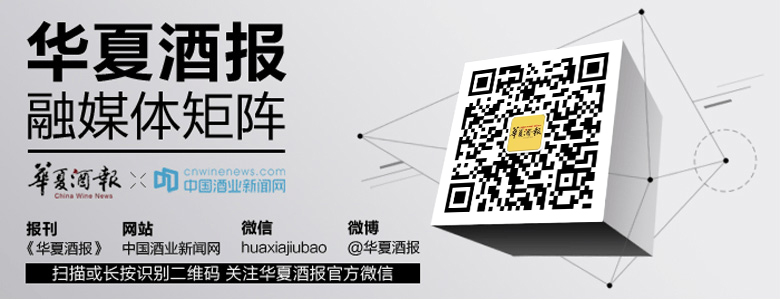If an investor bought shares of Kweichow Moutai at RMB6.25 at its IPO in 2001, their overall return on investment — based on a share price of RMB1,634.08 (as at 9 September 2021) and inclusive of dividends received over the years — would be 27,584%!
Kweichow Moutai is publicly traded on the Shanghai Stock Exchange and is indirectly majority-owned by the Guizhou provincial government. It is currently the world’s most valuable liquor company by market capitalisation.
What is Kweichow Moutai?
Kweichow Moutai produces and sells Moutai (or Maotai). It is a type of distilled colourless baijiu (white liquor) that is primarily made by fermenting sorghum in brick pits. In some other baijiu varieties, rice and wheat are used instead to give the baijiu different aromas. Baijiu usually contains high alcohol per volume and is well-known in China. Moutai is named after the town it originated from (i.e., Maotai town in Guizhou province, China).
The company’s flagship Moutai, Kweichow Moutai Feitian (or Flying Fairy), carries a savoury aroma that is similar to fermented beans and soy sauces. Apparently, the Moutai aroma is so strong that you will notice its faint smell in the air when you arrive at the town.
The retail price of a half-litre bottle of Kweichow Moutai Feitian stands at about US$350. A bottle of aged Moutai that is properly stored will cost even more. Moutai tops the list of the most expensive bottle of liquor sold in China. A bottle of rare 1935 Lay Mau edition (a different type of Kweichow Moutai) was sold at a whopping US$1.55 million in 2011.
Why is it Moutai so expensive?
Kweichow Moutai is commonly known as the national liquor in China despite the company’s multiple failed attempts to trademark it as such. It is historically and culturally significant to the Chinese. It is often associated with the former leaders of the Chinese Communist Party; Kweichow Moutai was the favourite liquor of Mao Zedong and Zhou Enlai alike.
The liquor has traditionally been served at Chinese state banquets and business events, or presented as a diplomatic gift. It was served at the founding of the People’s Republic of China in 1949, and Zhou famously toasted American president Richard Nixon with the drink during the 1972 summit between the two countries.
While the company has gradually expanded its production capacity, the supply of the liquor remains limited because of elevated consumer demand. The company claims to be only able to produce the liquor in Maotai town using the water extracted from the upper reaches of the Chishui River.
The management tried to expand and replicate the production processes elsewhere in both other parts of Maotai town and China but to no avail because of the differences in climate and concentrations of micronutrients in river water. The product was of inferior quality according to them. While this may be partly true, I believe this is partly a marketing gimmick and a way to brand Kweichou Moutai as a premium product.
Adding to Moutai’s limited supply is the long production period and laborious manufacturing processes. It takes typically five years to produce a fine blend of Kweichou Moutai. As a result, the average inventory and cash conversion cycle days for the company stand at 1,490 and 1,466 days respectively over the past 20 years.
The quality control process is noticeably manual, and the company still relies on master blenders’ personal tastes and techniques passed down from generation to generation to produce the liquor (this could be part of the branding too).
Can Kweichow Moutai grow even more valuable?
Kweichow Moutai has strong brand equity. In 2020, it owned the biggest pie of the domestic baijiu market share in China at 39.5%. Even though the company has increased its product pricing almost every two years in the past, consumers are still willing to purchase its products. The economic moat is hardly eroding despite stiff competition over the years. Its gross and net profit margins are in fact increasing, and averaged 88.5% and 39.6% over the past two decades.
Overall, the company carries fewer than 50 products. Some of them come in different volumes so that consumers can afford them at different price points. Revenue and net profit have grown at a compounded annual growth rate of 23.9% and 29.8% respectively over the past 20 years because of increasing sales volume and price increments. In 2020, the company still managed to inch its revenue and net profit upward by another 6.7% and 13.5% year-on-year respectively despite the COVID-19 pandemic.
Its production technique is recognised as China’s ‘national intangible cultural heritage’ and remains a commercial secret. Visitors are only permitted to enter the plants that are guarded by the People’s Liberation Army after going through a lengthy approval process. The flagship liquor has distinct multi-layered aromas ranging from chocolate and tobacco to mushroom and cheese according to those who have tried (I am more than interested to give it a try). Its savoury, nutty, funky, and fiery tastes cannot be easily cloned.
When Chinese say ganbei and toast at wedding dinners or special occasions, the baijiu is mostly finished in one shot. Its aroma and taste are usually too pungent for foreigners at first. About 97% of the company’s revenue comes from China alone; it has yet to penetrate foreign markets. It could take time for the liquor to win the hearts of foreign consumers. (Cocktails infused with Kweichow Moutai could be a good start.)
As Chinese consumers become wealthier, their appetite for alcohol also grows. Kweichow Moutai symbolises social status, wealth, and power. Although younger Chinese adults may not appreciate the drink as much as their older peers, it is a popular gift of choice among Chinese businessmen and consumers. Its popularity has also risen among vintage collectors and speculators. This has further fuelled interest in the liquor as well as the company’s stock.
What investors should be concerned about
There were several high-profile corruption cases linked to the executives and management of Kweichow Moutai in the past. One notable scandal involved the company’s previous chairman Yuan Renguo. He used his position in the company for personal gains by handing out distributor licences illegally and pocketed approximately RMB230 million and a five-kilogramme golden tripod as bribes in return.
This incident was showcased in a television documentary as part of the government’s anti-graft effort. Transparency is lacking as issues like these are seldom mentioned in either annual reports or company announcements.
In 2012, President Xi Jinping launched a far-reaching anti-corruption campaign in China. The campaign prohibits lavish spending on official overseas trips, vehicles, and banquets. Consequently, the sales of Moutai were rather flattish between 2013 and 2015 partly because of the crackdown. Nevertheless, its sales continued to surge afterwards.
Kweichow Moutai’s management has also been rather sneaky at times. In 2019, it allowed the parent company to establish a wholly-owned subsidiary that is involved in selling Kweichow Moutai products. Sales amounting to about 13.6% of its net profit and 6.3% of its revenue in 2019 were taken away from the listed entity at the expense of minority shareholders. The deal was not tabled for shareholders’ approval as the amount was within the permissible threshold.
In 2013, Kweichow Moutai was fined RMB247 million for allegedly breaching anti-monopoly regulations by setting a price floor for distributors. Each year, the company also has to spend millions of renminbi on anti-counterfeiting measures to stamp out fake Moutai.
The fifth perspective
Kweichow Moutai has recorded good financial results by achieving decent growth and maintaining positive cash flow and mostly zero debt over the years. Its brand equity can hardly be duplicated, and it has cemented its position as the liquor of choice among Chinese consumers.
However, I will demand some margin of safety before I consider investing in Kweichow Moutai given its transparency issues, corporate governance risks, and occasional uncertainties that arise from time to time.

